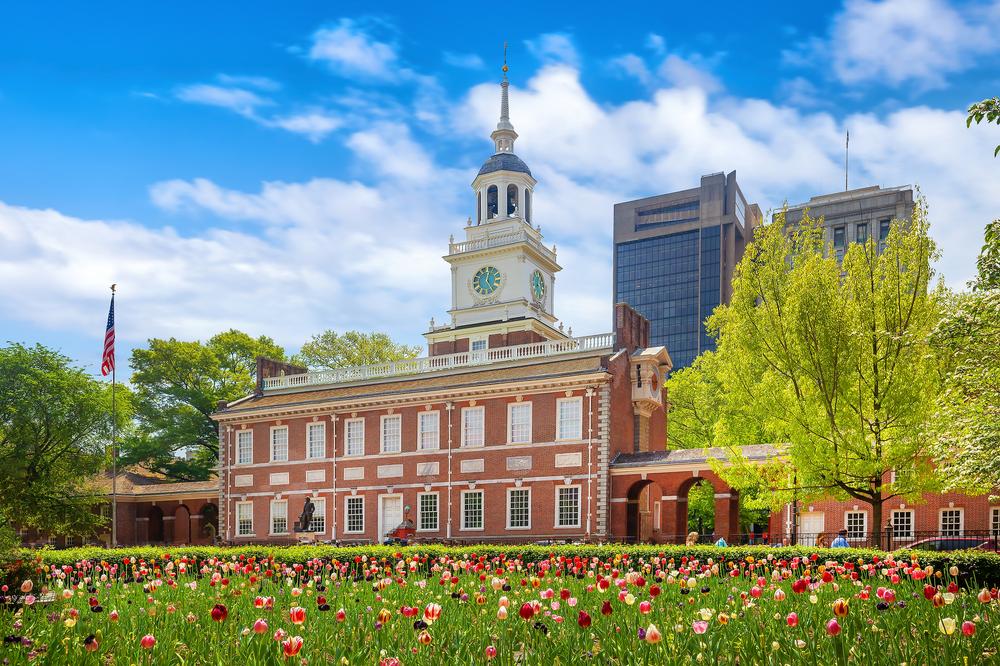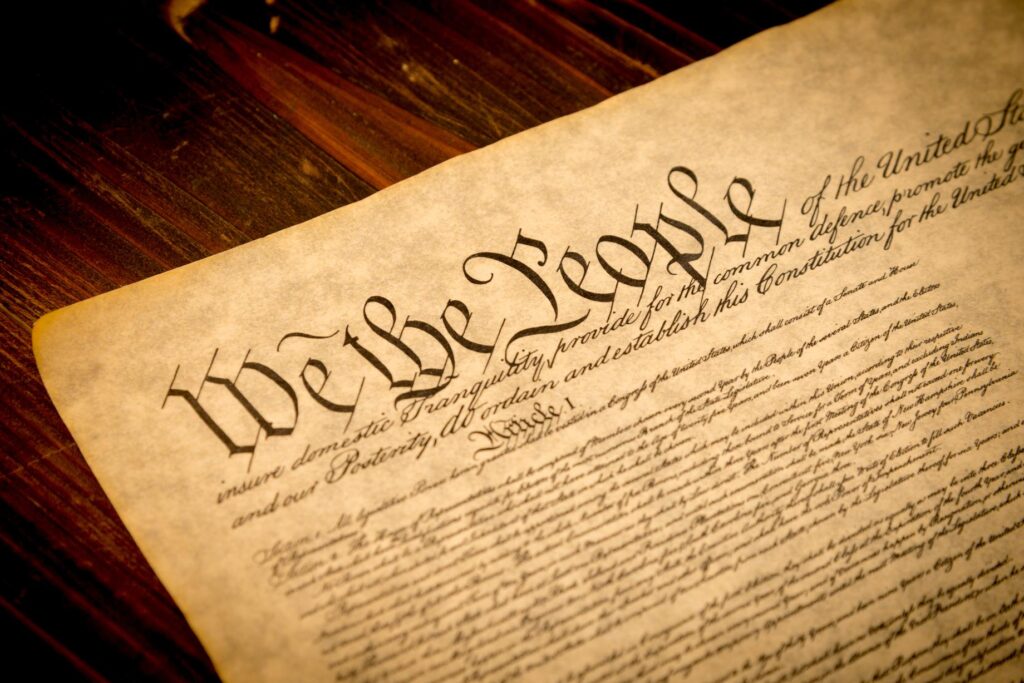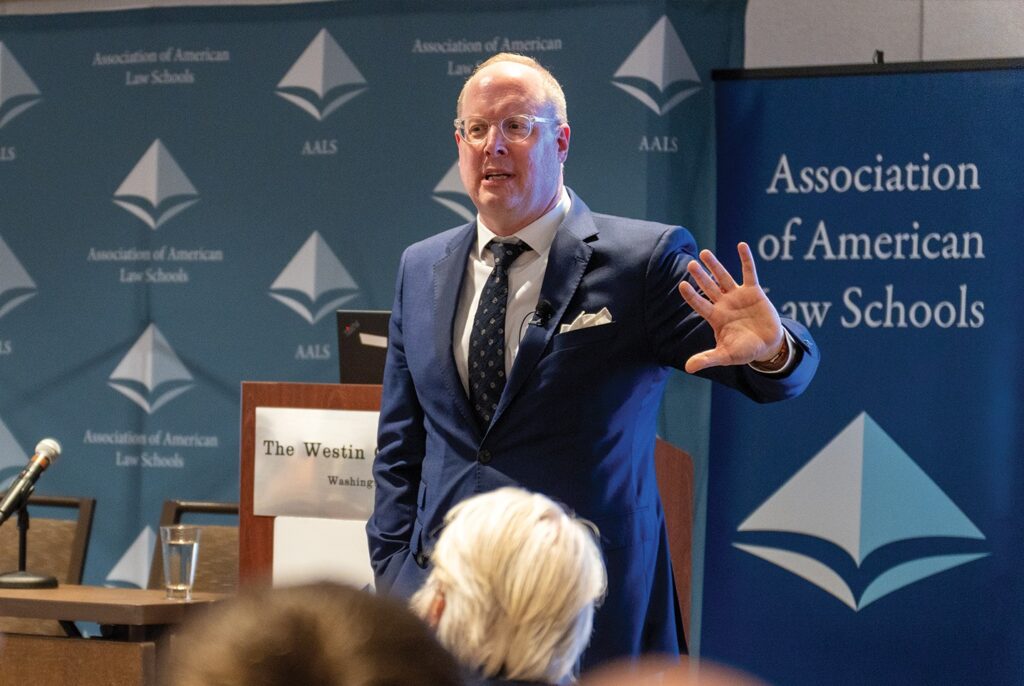The Role of Legal Education, Enduring Principles, and Supporting Each Other
By Austen Parrish, AALS President and Dean and Chancellor’s Professor of Law at University of California, Irvine School of Law
Today is Constitution Day. Each year on Constitution Day we pause to take a moment to reflect on our constitutional history that began on Philadelphia’s cobblestone streets and has steered us through ever-changing times. The day formally commemorates the signing of the United States Constitution by the delegates to the Constitutional Convention on September 17, 1787.
Constitution Day is a day focused on education. Public and private educational institutions across the United States are required to provide programming so that our students learn more about our history and our democracy, the importance of our constitution and the rule of law, and the promise to continue making “a more perfect union.” As President Reagan said in his 1981 proclamation, “While a constitution may set forth rights and liberties,” only the people can “maintain and guarantee those freedoms” while “[a]ctive and informed citizenship is not just a right; it is a duty.” President Obama with his 2016 proclamation underscored the “responsibility that challenges each of us to stay informed, to speak out when something is not right or not just, and to come together to shape the course our country will take.”

This commitment to learning, to public education, and indeed to the special role that universities play in our democracy, finds deep roots in our history. That history is worth remembering, particularly at a time when universities face unprecedented and spurious attacks. In 1790, when George Washington gave his first annual address to Congress, he noted the importance of “teaching the people themselves to know and to value their own rights; to discern and provide against invasions of them; to distinguish between oppression and the necessary exercise of lawful authority….” Thomas Jefferson and others emphasized that an educated citizenry was vital for the nation’s success, believing that a well-informed populace was essential for self-governance and freedom, while John Adams urged that the education of all in our nation, whether rich or poor, had “to be the care of the public” and “maintained at the public expense.”
This year, Constitution Day takes on particular importance. We are inundated with misinformation, conspiracy theories, and extremist views to which elected officials increasingly pander. Many worry that we are in a constitutional crisis, on the brink of one, or at least facing “a constitutional stress test.” In this context, we benefit from recognizing the ties and commonalities—beyond partisanship and politics—that binds faculty, law schools, and the legal profession together. Our Constitution enshrines our collective, shared responsibility to all in our society and protects all persons within our country. It is the key document setting the framework to prevent abuses of power, ensuring the government respects constitutional rights and adheres to the rule of law. And it’s ever more critical as we experience unprecedented attacks on the judiciary, lawyers, and the broader legal system, as well as other lawless action.

Today is also a time to remember what makes our Constitution distinct and enduring. Our Constitution is remarkable in part because of how it separates and provides only limited powers to our federal government, ensuring that power is not concentrated in any one branch. As James Madison argued in the Federalist Papers #47, “the accumulation of all powers, legislative, executive, and judiciary, in the same hands… may justly be pronounced the very definition of tyranny.” The framers of the Constitution were thus realists when they crafted a system of checks and balances designed to protect us from the worst in human ambition, whether to cruelty, conflict, or greed. And yet, the essential principle of separation of powers is under threat and its future more uncertain than ever.
Another aspect of our Constitution is worth reminding our students. While a fundamental cornerstone of our democracy is that the courts protect society from unconstitutional government action, that protection should rarely be needed. Our presidents, high-ranking officials, and others in our government are constitutionally mandated to take care to uphold and enforce the Constitution and the laws passed by Congress, while respecting the rulings of courts. Our courts are there for the difficult questions, but for the legal questions long settled—for example when the Constitution’s text is clear and the meaning resolved by years of practice and precedent—all in our government are obligated to follow regardless of their own policy preferences or views on the laws’ wisdom. This is a point to explain to students as we continue to see the government bypass established law and ignore court orders, while hundreds of lawsuits challenge administrative actions. And it’s particularly important as we see this trend occur not just in our own country, but in other countries too.

On this Constitution Day, law school communities—our faculty, staff, students, and alumni—should take a moment to reflect on the U.S. Constitution, the reasons our Constitution has stood the test of time, and how legal education and the nation’s commitment to the rule of law are pertinent to the pressing issues of today. And it reminds the legal academy and the legal profession why standing up for vital, non-partisan principles—principles like separation of powers and the rule of law that are at the core of our constitutional system—is so crucial.

